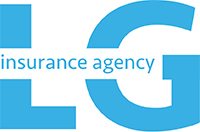In the world of real estate investing there are multiple different avenues that people go down to turn a home into a line of revenue, a fix and flip being no exception! This investment strategy calls for a few steps, acquiring a low-cost property, making necessary renovations and selling the home at a higher price – that is how you make a profit. As straightforward as this sounds, this project is filled with various risks that you have to be willing to undertake; which is where insurance comes into play.
The Risks Involved in Fixing and Flipping
The process of fixing and flipping is inherently risky due to the many moving parts of renovating a home, especially if it is a more mature property. Once someone begins digging up floors, or taking down walls, you could have issues come up that you did not account for at the beginning of your project.
Aside from surprise complications with the infrastructure, common risks include property damage due to the renovation process, theft of appliances or materials, and potential accidents that can occur on the job site from equipment or other dangers. Each of these risks carries their own financial implications, which could have a significant hit on your overall profit return.
Types of Insurance Coverage Needed
With the mix of undeniable risk and the return on investment at stake, having appropriate insurance coverage is crucial. A few policy types that one should consider when taking on a fix and flip are: builders risk, general liability, workers compensation and vacant property insurance.
Builders Risk Insurance
Builders risk insurance is critical to have for property protection, coverage for materials and equipment, financial safeguard, customizable coverage and in some cases, as a lender requirement.
- Property Protection: A builders risk policy can provide coverage for the property itself during the timespan of construction, including damage to the structure in case of fire, vandalism, and certain weather conditions.
- Coverage for Materials and Equipment: If items are either stolen or damaged while on-site, in transit, or temporarily stirred elsewhere, a builders risk policy can assist in getting these items replaced.
- Financial Safeguard: In the event of a loss, the project timeline can get thrown off, leading to increased construction costs and loss of potential profits from a delayed sale. This policy can assist you in covering the additional expenses of time and product.
- Customizable Coverage: Every fix and flip project is unique, so the ability to customize your coverage to match the different needs of each individual project is beneficial. For example, a clause may need to be added in order to account for the cost of bringing the property up to update with building codes.
- Lender Requirements: In the event that someone secured financing for their project, the lender may require this policy coverage in order to protect their financial interest in the property.
General Liability Insurance
General liability is essential coverage to have in order to have protection against injury and property damage claims, cover for reputational harm, and for contractual requirements.
-
Protection Against Injury Claims: Construction sites, no matter the size, carry inherent risks of injury for those involved. In the event a worker, visitor, or even a trespasser gets injured on the property – they could file a lawsuit. In this case, general liability coverage can help cover the legal fees, medical payments and damages one is legally responsible for.
-
Protection Against Property Damage Claims: Throughout the renovation process, there is a risk of causing damage to neighboring properties. For instance, if renovations lead to damaged pipes in the neighborhood, you could be found financially liable, and if so – this insurance coverage would be able to help cover the associated costs.
-
Cover for Reputational Harm: If accused of slander, libel, or advertising injury by another party, general liability can help cover legal defenses and any damages awarded.
-
Contractual Requirements: Contractors, clients, or financial institutions such as a bank may require a general liability policy before they begin working with you on the project. This requirement is to ensure that there are some funds available in the event of a claim payout.
Workers Compensation Insurance
Workers compensation is an important key coverage to have, not only is it a legal requirement and can be used as protection against lawsuits, but also to help in covering potential medical costs or costs of wages and for business continuity reasons.
- Legal Requirement: In most states, it is mandatory for businesses with employees besides themselves to have workers compensation insurance. If you have hired contractors, landscapers or a construction company to do work on the fix and flip, more often than not they will have this insurance required for their business to operate legally.
- Protection Against Lawsuits: Workers compensation covers a bit of liability coverage – in the event an employee is injured and decides to sue for damages, this coverage can help cover legal costs or settlements.
- Medical Costs and Lost Wages: In the event a worker gets injured on the job, or ill due to work-related activities – this coverage can help cover their medical expenses and a portion of lost wages due to their absence.
- Business Continuity: This coverage helps the business maintain its morale and productivity amongst the workforce by ensuring that the employees are protected through insurance.
Vacant Property Insurance
Vacant property insurance provides a safety net for your investment during periods of time when the space is unoccupied; it is there to provide comprehensive protection and liability coverage while doing so on flexible terms.
- Comprehensive Protection: Vacant property is susceptible to theft, vandalism, fire and other weather-related damages, especially depending on the state of the structure. If the property is going to be vacant for a prolonged period of time, vacant property is essential to ensure continuous protection.
- Liability Coverage: Vacant property is also prone to trespassers, in the event someone gets injured while trespassing – you still could be found financially responsible. This type of policy typically includes liability coverage – protecting you from potential lawsuits.
- Flexible Terms: This coverage can offer flexible policy terms, which can be useful for fix and flip investors. Policies can be taken out for short terms, often starting at three months, and can be canceled as soon as the property is sold, or occupied.
Successful Flipping with Proper Insurance
Jane purchased a cozy, quaint bungalow with the dreams of turning it into a seaside oasis. When discussing coverage options, Jane told her agent that the property would be vacant for several months during the summertime due to a no construction ordinance during the busy beach season. The investment property being in close proximity to the beach – her agent knew that she would need to add wind coverage to the builders risk policy. For her fix and flip project, Jane ended up with a builders risk policy that included wind coverage, a vacant property policy, as well as a general liability policy to further protect the property.
On the Fourth of July, Jane got a call from the local police department informing her that a group of young teenagers were trespassing inside the house and someone fell through the unfinished second floor, causing them to break their leg. Now, although they were not supposed to be there – the injured teen decided to sue Jane for the medical expenses. Luckily, her vacant property insurance stepped in to cover the hospital bills and legal defense; while also, covering the damages done to the second floor ceiling.
What could have been a financially stressful situation was easily resolved with peace of mind due to the custom coverage set up for Jane and her property.
Conclusion
Whether you are a seasoned fix and flipper or just getting started on your first property, the importance of appropriate and tailored insurance for real estate flipping projects cannot be overemphasized enough. LG Insurance Agency stands out for the experience and commitment for providing comprehensive, custom insurance plans that meet the customer’s specific needs for their projects.
If you are considering a fixing and flipping project, we encourage you to contact us at (877) 288-7169 to discuss your insurance needs. With LG, you can proceed with your investment confidently, knowing you are well protected against potential risks. We look forward to supporting you as you take on this exciting new project!


